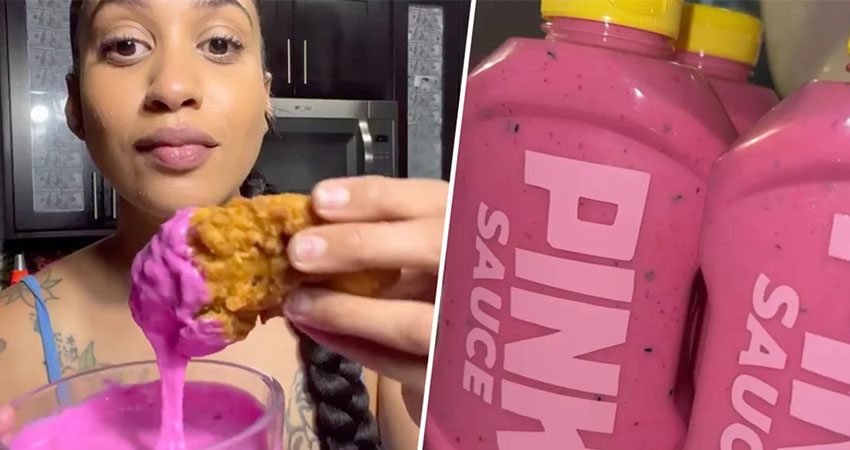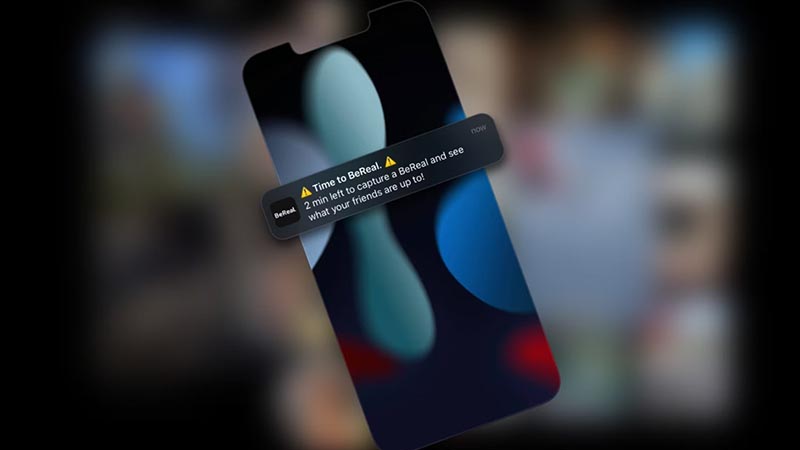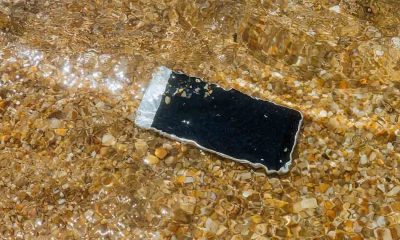Top Stories
Medievalists Take Down Questionable Article After Historians Call Them Out
Published
3 years agoon

Video game developers have the freedom to create their work as historically accurate as possible. They can base locations or events from history and make them work to fit the game’s narrative. One video game that has come up regarding historical accuracy is Assassin’s Creed. But there was one article that has medieval historians questioning the credibility of the author’s views when it comes to Assassin’s Creed in the middle ages.
The Assassin’s Creed in The Middle Ages Article
Assassin’s Creed is known to have some historical semblance in its series. For example, some historical figures and locations were featured in the franchise. And it was discussed in a now-deleted article in Medievalists. There, the author discussed certain events in the game and compared them to history, and cited some works that may or may not fully represent Medieval history.
That said, medieval historians called out Medievalists for publishing the article, since the writer’s views seem to lean on far-right perspectives, white supremacy, and Islamophobia. After the backlash Medievalists received, they took down the article.
Peter from Medievalists has said that they will no longer publish the article and won’t have the author continue with his column. And he promises to vet contributors in the future.
First of all, I want to thank everyone for their comments and issues with the piece by Mr. Theriault. I read through them and the original piece, and the article will not return nor will the author’s column continue.
— Medievalists.net (@Medievalists) March 31, 2022
Twitter Responses About The Assassin’s Creed in The Middle Ages Article
Medieval history Twitter was vocal over the published contribution to the Medievalist. One of them was Ludohistory, who created a thread regarding the article. He further elaborated his stance on Twitch.
He argues that the writer seemed to have views of Islamophobia, considering how they wrote about Saladin– a character in the Assassin’s Creed series. In addition, it appears as though the writer may have praised or lifted up certain white figures but criticized Saladin.
And as his stream continued, Ludohistory encouraged his viewers to read books and scholarly journals from historians, one of them being Andrew Elliott. Elliott wrote the book, Medievalism, Politics, and Mass Media: Appropriating Middle Ages in the Twenty-First Century. Another book he recommended was by Amy Kaufman and Paul Sturtevant was The Devil’s Historians.
hey uh…. @Medievalists this is really bad. Just a few thoughts now, but I'll talk more about this on my stream this afternoon. https://t.co/o8urExO5xv
— Ludohistory (@ludohistory) March 29, 2022
Twitter user women_1000 has also weighed in on the article. Once she read the phrase “relatively accurate”, she states that the Assassin’s Creed Valhalla is not accurate at all. Plus, she has also touched on the subject of religion and the Vikings, the character of Eivor, and Alfred the Great. You can read the Twitter threads here:
?I normally love @Medievalists but I am not sure what the heck I just read here. It went from "how could you say AC Valhalla is accurate" to "oh… THAT'S why you think it's accurate… YIKES."https://t.co/FItI113E4k
— Women of 1000 AD (@women_1000) March 29, 2022
?Pt 2 of this thread because apparently there is a tweet limit to threads.
— Women of 1000 AD (@women_1000) March 29, 2022
4th problem: ALFRED THE GREAT. I guess our author really loves Alfred. So much that he quotes Winston Churchill as an example of historiographical opinion on him: https://t.co/BleQdWexso pic.twitter.com/q7yJGOYRjP
Another prominent voice in Medieval history Twitter was Dr. MRO (ISASaxonists). Aside from agreeing with ludohistory and women_1000, she has also called out that it wasn’t the first time the Medievalists had published an article with alt-right views. And she had questioned the vetting process for articles published on the site and the people Medievalists follow on Twitter.
An excellent analysis of a very problematic article being platformed by @Medievalists. Not the 1st time they've platformed alt-righty views (they were reminded they were connected with a wyte nationalist recently). A little more vigilance is required in vetting authors. https://t.co/dHPNXP6vsR
— Axel Folio, PhD, sister of Dahistorius Lamystorius (@ISASaxonists) March 29, 2022
Should Games Be Historically Accurate?
In that light, should game developers ensure that history should be depicted accurately? Most would say no. Ludohistory shares in his Twitch stream that video game developers or companies get a construct from different places and other elements like “musical, aesthetic, and narrative tropes and modern storytelling techniques.”
In one survey conducted by The Conversation, 58% of their respondents have said they would prefer a historically accurate video game or reduce any historical change. That’s where historians can come in and consult for these video game developers or companies. But as The Conversation also pointed out, these video game developers should draw a line between catering to the players’ desire to have a historically accurate video game and adding fabricated elements.
How accurate is Assassin’s Creed?
One thing’s for sure: Ubisoft has done their homework by bringing historians to their research team. For Assassin’s Creed: Valhalla, they brought in Thierry Noël to the team. For Odyssey, it was Dr. Stéphanie-Anne Ruatta. Whereas for Assassins’ Creed Origins, it was Evelyne Ferron.
Of course, Ubisoft has creative liberties with several elements in the game. But they ensure several historical figures, events, and places are accurate while putting their own spin on storytelling.
And if you want to know more about the history and its accuracy in Assassin’s Creed: Valhalla, you can read this Ask Me Anything hosted by historians.
You may like
Top Stories
What Is Tiktok Pink Sauce? The Viral Condiment, Explained
Published
18 hours agoon
July 11, 2025
TikTok’s pink sauce went viral. What’s going on?
TikTok creator Chef Pii is the connoisseur behind a mysterious pink sauce that has exploded over the internet, resulting in discourse and memes. The narrative is as odd as the so-called sauce, and it continues to perplex internet detectives and users alike.
What is TikTok Pink Sauce?

On June 11, Chef Pii, a Miami-based private chef and social media influencer, posted a short TikTok of herself dipping a chicken tender into a bowl of bright pink sauce. That one video garnered more than 755,000 views. That’s how the journey of a product she invented called “pink sauce” started.
The TikTok creator released videos featuring the sauce, trying it with different foods, and showing the packaging. According to the videos, the sauce is priced at US$20. It quickly became a craze. But this is mainly because Chef Pii refused to share how the sauce tasted. She often had other reviewers taste it, but she provided cryptic answers on how it tastes.
In late June, Chef Pii released a TikTok video addressing that concern. A day later, she revealed the ingredients, posting a graphic outlining each: dragon fruit, sunflower seed oil, honey, chili, and garlic.
Nutritional labels – and errors
Creator @sseaansvv recently raised further questions, investigating deeper the pink sauce saga. The TikTokker called “Pink Sauce Lady” for errors in her nutritional label. They also claimed that “there are not enough preservatives” within the sauce “to make shelf stable.”
Sean SVV also wrote in her second video’s caption, “I’m genuinely rooting for her to get a license, fix the errors before selling it legally.”
Another TikTokker, @annareportsnews, also posted a video the same day saying that the serving size per container is unrealistic. She also mentioned that the label doesn’t specify that the sauce should be refrigerated.
America’s Food and Drug Administration (FDA) mandates manufacturers of dressing and condiments to apply for registration. The FDA sets standards on labels, testing methodologies, manufacturing practices, and scientific protocols.
In April 2022, FDA issued the revised guidelines for nutritional fact labels on food and drink products. Serving size is among the updates for the label. However, the FDA doesn’t allow pre-market approval for food products.
A few days later, Chef Pii announced in a video that they were fixing the issues.
She apologized for the label errors and stressed fixing the nutritional labels for all future bottles of the sauces. She also emphasized that she appreciates the support her sauce has received and that she is operating a small business and is trying to reduce the price of the sauce.
The nutritional label is also available for viewing on her site, which previously didn’t seem to be the case.
Twitter Memes About the Controversial Pink Sauce
Recently, the internet has become crazy with pink sauce. People post everything from memes to analysis, while others express the desire to try the sauce. On Twitter, “Pink Sauce” is currently trending.
Links:
cause of death: pink sauce
— Katherine Krueger (@kath_krueger) July 21, 2022
how do i know pink sauce isn't just pepto bismol
— ari (@arianeanindita) July 21, 2022
Just learned about pink sauce and I love everything about it. The fact that it's apparently just ranch with red food coloring. The label that doesn't fit the bottle stuck on with glitter glue. The misspelling of vinegar on the ingredients. The fucked up nutritional information <3
— parker!!! (@anti90smovement) July 19, 2022
Even Netflix has posted about the sauce.
Just got my pink sauce. I know what I'm doing tonight! pic.twitter.com/G1Rf7pVLSr
— Netflix (@netflix) July 21, 2022
But the story does not end there.
Chef Pii took to Instagram Live, YouTube, and TikTok to answer users’ questions. Likewise, she spoke to various media outlets, such as NBC, Washington Post, and Buzzfeed, to defend her unique product.
During her Instagram live, the chef said, “What do you mean by FDA-approved? But, I don’t sell medical products. The “Pink Sauce” isn’t a medical product and it don’t contribute to your health.”
That response stirred Twitter again, causing “F in FDA” to trend across the app.
Selling a “popular” food product while not knowing that the F in FDA stands for Food is wild.
— Bianca (@mz_bee726) July 26, 2022
On July 27, Chef Pii emailed all pink sauce customers about the new terms and conditions. The email addressed the Pink Sauce Supporters and said they are working to fix the issues surrounding allegations and claims against the condiment.
Chef Pii also explained that she is now cooperating with the FDA and the Florida Department of Agriculture and Consumer Services. And she is waiting on official approval for the sauce and updating the packaging to ensure “preciseness.”
And for other stories and news, read more here at Owner’s Mag!

Merck is currently in talks to acquire Seagen, a biotech company. The Wall Street Journal reports that the transaction is valued at $40 billion. And what happens if Merck acquires Seagen, and how would this acquisition benefit cancer research and treatment? Read more about the Merck Seagen buyout here.
Merck Seagen Buyout
Merck and Seagen are still deciding on their share prices. So far, talks have yet to reach an agreement on $200 per share. Both companies want to settle and finalize their deals before Merck announces its quarterly earnings on July 28. At the time of writing, Seagen’s stock was at $176.19.
With an estimated market value of $235 billion, Merck is looking to expand its presence in the cancer treatment space. The Merck Seagen Buyout could play a major role in that strategy. Since Seagen specializes in targeted cancer therapies, the acquisition would give Merck access to a broader range of oncology products.
Shareholder reactions to the new deal are overwhelmingly positive, and the stocks have been up since talks about the deal have been made public.
But this is not the first time that Merck and Seagen have made the news. Back in 2020, they collaborated because of cancer treatments. Seagen has a drug conjugate (ladiratuzumab vedotin) which would be used in conjunction with Merck’s Keytruda.
Merck reveals that Keytruda is its highest-selling product. It’s immunotherapy for cancer.
And this deal could help Merck offset the possibility of reduced sales because it will lose patent protection in 2028.
As promising as this deal is, there could be scrutiny from antitrust officials since there might be a litigation case from the Federal Trade Commission or Justice Department.
The Seagen buyout isn’t the only deal Merck has made recently. They’ve been busy closing another deal, but with Orion too.
Seagen
As a cancer biotech company, Seagen has therapies to ensure that patients benefit from the treatment and reduce any adverse side effects. Their treatments involve the therapy attacking tumors with toxins.
Merck partnering with Seagen isn’t a bad idea considering that Seagen made $1.4 billion in sales in 2021, most of it coming from Adcetris and Padcev (a treatment for urothelial cancers).
Merck-Orion Deal
In the middle of the Merck Seagen Buyout, Merck has recently partnered with Orion for the ODM-208 and other drugs. These drugs are related to the production of steroids. Orion found how it can combat hormone-dependent cancers and further developed this inhibitor.
Their deal includes that they should develop ODM-208 and promote it to the public together. And Orion will receive a $290 million payment from Merck.
Although they’re co-developing and marketing the new inhibitor, Orion will oversee the manufacturing side.
Co-developing the ODM-208 can help Merck with its current research and treatments for prostate cancer. President and CEO of Orion, Timo Lappalainen, says that this partnership will benefit Merck’s goals of treating cancer worldwide.
Other Ventures: Merck’s Role in the Pandemic
You may have heard about COVID-19 pills, which are a form of treatment for those diagnosed with mild to moderate COVID-19. Merck introduced an antiviral COVID-19 pill to the public. The name: Molnupiravir.
The COVID-19 pill is not a replacement for a vaccination. Instead, it stops the replication of the COVID-19 genetic code and keeps the patient out of the hospital. Not yet FDA-approved, Molnupiravir has been authorized for emergency use since December 23, 2021.
And for other stories, read more here at Owner’s Mag!
Technology
BeReal App: Will It Ever Survive Its Instagram Clone?
Published
4 weeks agoon
June 12, 2025
Social media trends come and go, everyone’s well aware of this by now. And currently, the app at the center stage is TikTok, the short-video hosting app. However, a new kid on the block is making waves, the BeReal app. Looking at the feedback from TikTok users, it seems that BeReal appears to have exploded so quickly.
What is BeReal App?

Source: Android Police
BeReal app is a new social media phenomenon that operates under a simple premise at works this way:
- Once a day, the app will alert you to take a photo. It will take one from your rear camera and one from your front camera a few seconds later.
- You will have a two-minute interval to take this photo to capture candid images.
- Then, the BeReal app will lay your front photo over your rear photo.
- You can share it with your friends. However, you won’t be able to see their posts until the next day. And if you missed the two-hour window, you’ll have to wait until the next day.
- You can also react to your friend’s posts by sharing a quick selfie attached to their post.
The premise behind these weird shooting windows is to encourage people to share snippets from their lives that aren’t just hand picked from parties or any planned events. But, it’s not the first app to go for the candid angle. Back in 2016, Casey Neistat of YouTube developed an app called Beme. The app encouraged users to take videos with their phones clasped to their chest so that, allegedly, they could stay focused on the moment. Later that year, CNN bought the app but ultimately shut it down in 2018.
BeReal vs Beme
What BeReal had that Beme didn’t was the ability to operate for two years with the increasing number of users showing for it. Based on a BeReal app job posting, the app has more than 10 million daiily users. It also says the company’s goal is to increase this number to over 100 million. Quite an ambitious goal but recent reports project the mid-size social media network Snapchat at about 350 million daily active users.
As Snapchat popularized the concept of communication through disappearing messages, BeReal may be relying on its own style to continue and encourage future partnerships with other businesses. Clubhouse, an audio-based social app that went live around the same time as BeReal, had plenty of activities to back it up, but things have quickly cooled down. It is recently experimenting with new features to make the app nteresting enough to attract more users. Meanwhile, the novelty of BeReal is still fresh, but once the surge of interest from TikTok has mellowed down, it will need to learn to be independent and beat the competitors.
What is an Instagram Candid?
Meta seems to be working on a feature called “Candid Challenges” for Instagram. Discovered by self-described reverse engineer Allessandro Palluzzi, users would be notified once a day to take and share a “candid.” It also copies BeReal right down to the last detail, giving users just two minutes to take the candid.
An Instagram spokesperson told Engadget that the feature was an “internal prototype” and with no users testing the feature. Still, we are yet to see this announced soon in an Instagram update.
While Meta has been the only company confirmed to be working on a BeReal clone, it wouldn’t be surprising if Twitter or TikTok followed suit as well. Twitter, specifically, might see BeReal candid shots a fit for the microblogging platform, but considering its brave attempt at copying Snapchat’s stories and the on-going buyout buzz with Elon Musk, it’ll need to stride carefully.
While BeReal is becoming popular, it faces an uncertain future. Will it end up being defeated by Meta as have many other successful startups that even vaguely have a conflicting interest with its existing properties? Or will it fail to innovate like Clubhouse did and die off after its 15 minutes in the spotlight? It might be a welcome change to the airbrushed faces and saturated filters from Instagram, but BeReal might just end up being a little too real for its own good.
If you’re interested in trying out the BeReal App, download it from the Play Store. Just remember you know how to take a selfie before you start aad that you’ll only get one shot daily.

What Is Tiktok Pink Sauce? The Viral Condiment, Explained

Did You Drop Your Smartphone in The Ocean? Here’s How to Retrieve It

Gift Guide: 25 Best Gifts for Women for All Occasions

History of the NBA: The Success Behind the Big League

Demio SaaS 2025 Review: Features, Pricing, Pros & Cons

Top 12 Uses for The Metaverse That Will Change Your Life

Top 10 Best Places to Buy a Mid Century Modern Office Chair

Top 10 Best Places to Buy a Mid Century Modern Office Chair

History of the NBA: The Success Behind the Big League

8 Best Equipment for YouTube Every Content Creator Needs

Demio SaaS 2025 Review: Features, Pricing, Pros & Cons

Did You Drop Your Smartphone in The Ocean? Here’s How to Retrieve It

Top 10 Small Business Organization Tools for 2025

Top 12 Uses for The Metaverse That Will Change Your Life
Trending
- Entertainment1 day ago
History of the NBA: The Success Behind the Big League
- Reviews2 days ago
Demio SaaS 2025 Review: Features, Pricing, Pros & Cons
- Lifestyle18 hours ago
Did You Drop Your Smartphone in The Ocean? Here’s How to Retrieve It
- Lifestyle1 day ago
Gift Guide: 25 Best Gifts for Women for All Occasions
- Top Stories18 hours ago
What Is Tiktok Pink Sauce? The Viral Condiment, Explained





